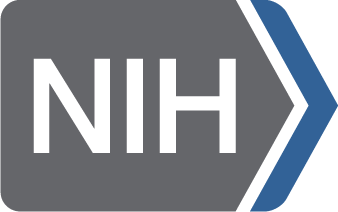 NIH’s Office of Research Infrastructure Programs (ORIP) has issued a program announcement for the Development of Animal Models and Related Biological Materials for Research. This opportunity “encourages highly innovative research to develop, characterize or improve animal models and related biological materials for human health and disease or to improve diagnosis and control of diseases that might interfere with animal use for biomedical research.”
NIH’s Office of Research Infrastructure Programs (ORIP) has issued a program announcement for the Development of Animal Models and Related Biological Materials for Research. This opportunity “encourages highly innovative research to develop, characterize or improve animal models and related biological materials for human health and disease or to improve diagnosis and control of diseases that might interfere with animal use for biomedical research.”
To be eligible for this program, the models must be applicable to the research interest of at least two different NIH Institutes and Centers (ICs). Models specific to one disease or category of research should instead be submitted to the appropriate IC. Applicants are strongly encouraged to consult with ORIP program staff to get guidance on the appropriateness of their proposal.
The funding announcement identifies several examples of projects that might be relevant for this program, including the following:
- New or significantly improved genetically modified animal models for human disease
- Development of novel tools for producing and improving animal models
- Characterization of animal disease
- Preservation of model systems
- Informatics tools for mapping molecular interactive and functional networks
- Strategies to increase quality and reliability of the pre-clinical data using animal models
- Fundamental biology of animal models
As an R21 Exploratory/Developmental Research Grant, applications should be distinct from those supported through the traditional R01 mechanism; R21s are
intended to encourage new exploratory and developmental research projects for a constant infusion of new ideas, techniques, and points of view into biomedical research. Such projects could assess a new experimental system that has the potential to enhance health-related research or may look at an innovative use of an existing methodology to explore a new scientific area. These studies may involve considerable risk, but may lead to a breakthrough in a particular area, or to the development of novel techniques, agents, methodologies, models, or applications that could have a major impact on a field of biomedical, behavioral, or clinical research.
Investigators may request up to $275,000 in direct costs for up to two years.
Application Information
- Funding Opportunity Announcement: PA-16-141: Development of Animal Models and Related Biological Materials for Research (R21)
- Application Due Dates:
- New applications: June 16, 2016, and October 16, 2016
- Renewal, resubmission, revision: July 16, 2016, and November 16, 2016












